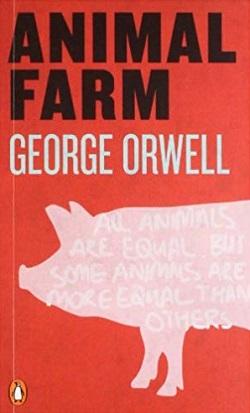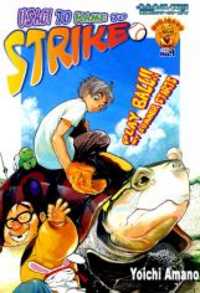George Orwell's Animal Farm is a masterful allegorical novella that transcends its time, offering a profound critique of power, corruption, and the cyclical nature of tyranny. First published in 1945, this 75th Anniversary Edition, complete with a new introduction by Téa Obreht, invites readers to reflect on the enduring relevance of Orwell's insights in today's socio-political landscape.
At its core, Animal Farm tells the story of a group of overworked and mistreated farm animals who rise up against their human oppressor, Mr. Jones. Inspired by the ideals of equality and freedom, they establish a new society where all animals are supposed to be equal. However, as the narrative unfolds, it becomes painfully clear that the revolution does not lead to the utopia they envisioned. Instead, it spirals into a new form of oppression, led by the pigs, particularly Napoleon, who embodies the very tyranny the animals sought to escape.
One of the most striking themes in Animal Farm is the manipulation of language and ideology. The animals initially adopt the slogan, “All animals are equal,” which is later twisted into “All animals are equal, but some animals are more equal than others.” This chilling phrase encapsulates the essence of totalitarianism, where language is weaponized to distort truth and maintain control. Orwell's sharp critique of how those in power can exploit language to justify their actions resonates deeply in contemporary discussions about political rhetoric and propaganda.
The character development in Animal Farm is both compelling and tragic. The pigs, particularly Napoleon and Snowball, represent the duality of leadership and the ease with which noble ideals can be corrupted. Snowball, who initially champions progressive ideas and education, is ultimately ousted by Napoleon, who resorts to fear tactics and violence to consolidate power. This power struggle mirrors historical events, particularly the rise of Stalinism in the Soviet Union, which Orwell intended to critique. The transformation of the pigs from revolutionary leaders to indistinguishable oppressors of the other animals serves as a stark reminder of how power can corrupt even the most well-intentioned individuals.
Orwell's use of anthropomorphism allows readers to engage with the narrative on a deeper level. The animals, each representing different societal roles, serve as a microcosm of human society. For instance, Boxer, the hardworking horse, symbolizes the proletariat—loyal, strong, and ultimately exploited. His tragic fate, where he is sold to the glue factory after years of unwavering service, underscores the betrayal of the working class by those in power. This poignant moment evokes a sense of despair and highlights the theme of disillusionment that permeates the novella.
The novella's structure, with its simple yet powerful prose, enhances its impact. Orwell's ability to convey complex ideas through straightforward language makes the story accessible to readers of all ages. The fable-like quality of the narrative, combined with its dark humor, creates a dissonance that forces readers to confront uncomfortable truths about society and governance. The stark contrast between the animals’ initial hopes and their eventual reality serves as a cautionary tale about the fragility of freedom and the ease with which it can be lost.
Moreover, the role of propaganda in Animal Farm is exemplified through the character of Squealer, the pig who serves as Napoleon's mouthpiece. Squealer's ability to manipulate facts and rewrite history illustrates the dangers of unchecked authority and the importance of critical thinking. His character serves as a reminder that the truth can be obscured by those who wield power, making it essential for individuals to remain vigilant and question the narratives presented to them.
Orwell's exploration of the theme of betrayal is particularly poignant in the context of the animals’ initial aspirations. The revolution, which promised a better life, ultimately leads to a regime that is just as oppressive as the one it replaced. This cyclical nature of power and oppression is a critical commentary on the human condition, suggesting that without constant vigilance, societies can easily regress into tyranny.
In comparison to other dystopian works, such as Aldous Huxley's Brave New World or Ray Bradbury's Fahrenheit 451, Animal Farm stands out for its directness and clarity. While Huxley and Bradbury explore the consequences of technological and societal advancements, Orwell focuses on the political dynamics that lead to oppression. Both approaches offer valuable insights, but Orwell's fable-like narrative serves as a stark reminder of the dangers of complacency in the face of tyranny.
In conclusion, George Orwell's Animal Farm remains a timeless and essential read for anyone seeking to understand the complexities of power, corruption, and the human condition. Its themes of manipulation, betrayal, and the cyclical nature of tyranny resonate with contemporary audiences, making it a relevant and thought-provoking work. As we navigate an increasingly polarized world, Orwell's insights serve as a crucial reminder of the importance of vigilance, critical thinking, and the enduring struggle for freedom and equality. The novella's impact is undeniable, and its lessons are as fresh today as they were at the time of its publication.
For those interested in exploring this classic further, it is available on platforms like Amazon and Goodreads.
























Reviews 0
Post a Reviews: